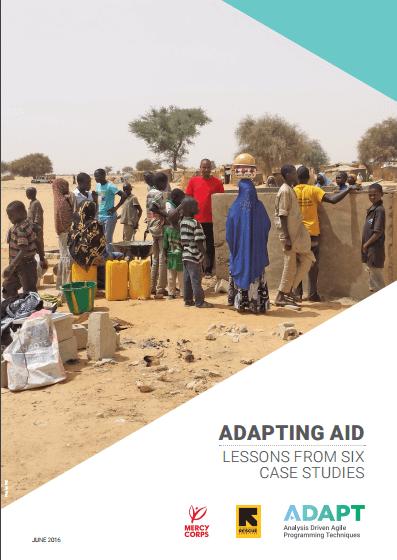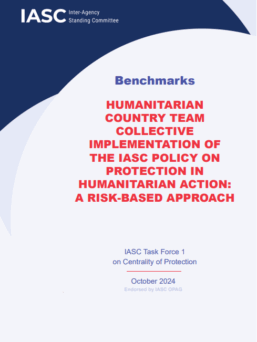Adaptability is an essential underpinning aspect of a results-based approach to protection. Yet most of the standard tools and processes we use are not well-suited to ensure flexibility and adaptability throughout a response. This report, a collaborative initiative from the International Rescue Committee (IRC) and Mercy Corps, explores what adaptive management looks like in practice, what impact it can have on programs, and how to best support this approach. Through six case studies the report highlights several key considerations for improving and implementing a more adaptive approach. Lessons from the case studies broadly into five categories:
- Dynamic and collaborative teams
- Hire local and hire for an adaptive mindset
- Foster open communications and a collaborative culture
- Provide mentorship and coaching
- Appropriate data and reflective analysis
- Keep an eye on the context and surrounding systems, by leveraging multiple forms of data through multiple channels
- Dedicate analytical capacity, with time and space for reflection
- Responsive decision-making and action
- Connect decision-making to the analysis and reflection process
- Place decision-making authority as close to front-line staff and partners as possible
- Agile and integrated operations
- Bridge the gap between programs, operations, and finance teams
- Create a mechanism for rapid procurement, grants, and contracts
- Trusting and flexible partnerships
- Plan for adaptation in budgets and outcomes reporting
- Keep organizational boundaries permeable
Mercy Corps and IRC will aim to institutionalize adaptive management within their organizations, pilot new techniques, and conduct field research to build evidence on the impact of adaptive management, share findings and convene events to influence the broader sector.



